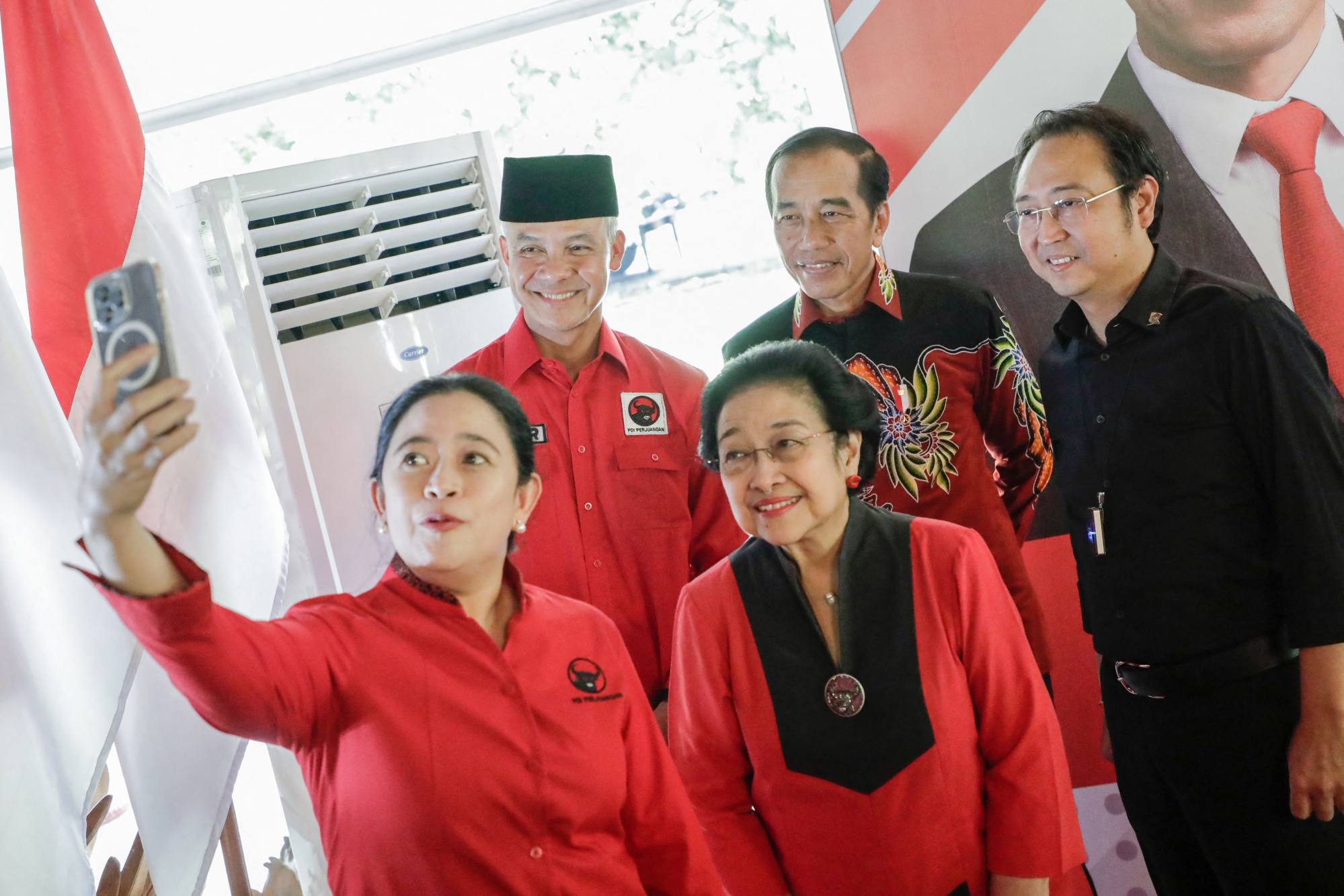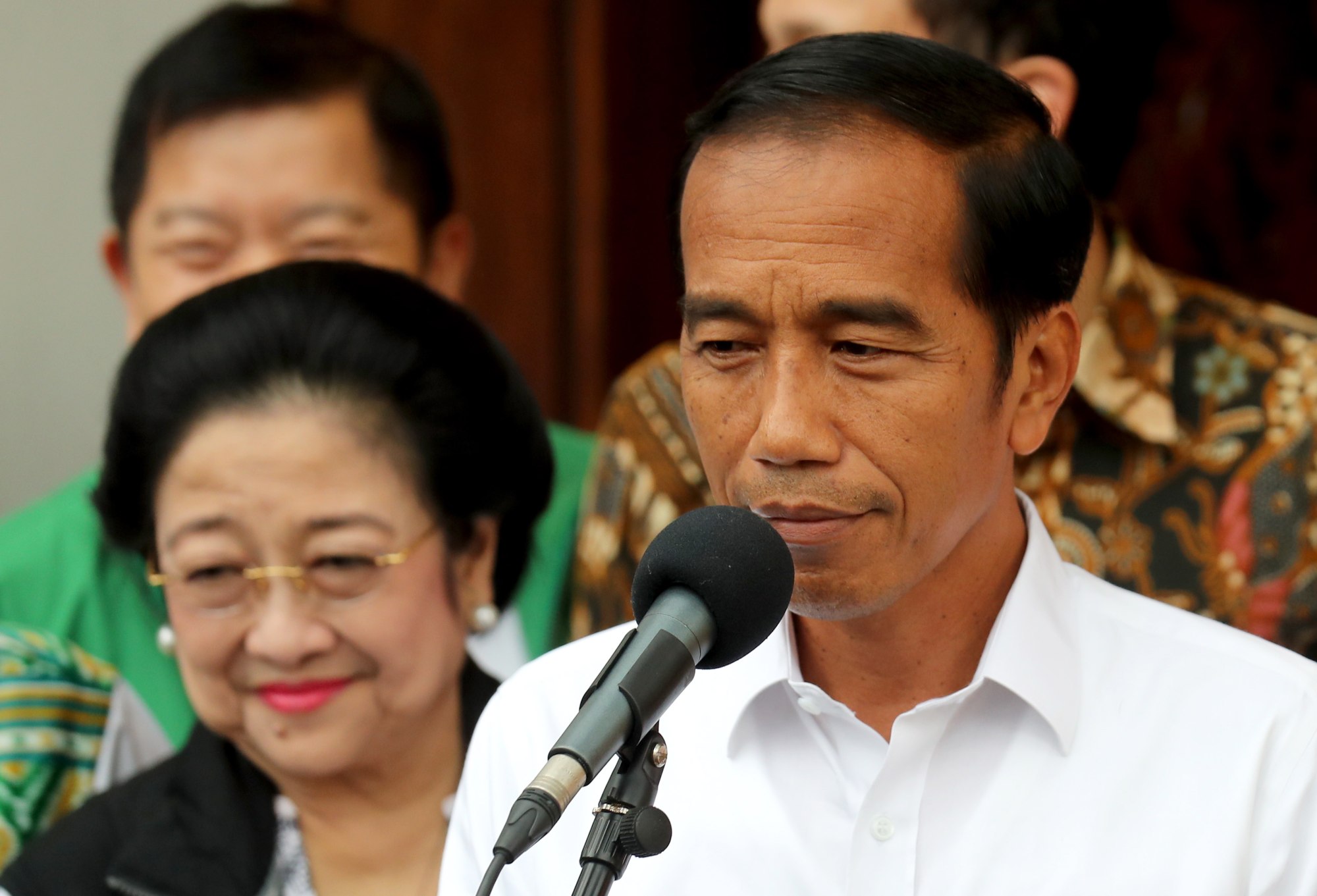
Indonesia election 2024: as Jokowi ‘deserts’ nation’s ruling party, will voters be divided?
- The PDI-P is openly discussing a split from President Joko Widodo, sparking doubts about its ability to retain its stronghold in parts of Java
- Analysts say the party, which won over 19 per cent of votes in the 2019 election, wants to distance from Jokowi to limit the risk of its supporters jumping ship
Widodo, or Jokowi as he is widely known, has relied on the Indonesian Democratic Party of Struggle (PDI-P) as his main political vehicle for more than two decades, helping to secure his mayorship of Solo city, governorship of Jakarta, and two presidential terms.

With his popularity at 80 per cent, analysts said Widodo has enough political capital to help him secure not just his legacy of governance, but to also spend it on his children’s political futures.
The PDI-P said on Sunday Widodo had “deserted” the party to pursue his political ambitions. The party also attacked what it saw as his attempt to “manipulate” the law to make Gibran, 36, eligible to run in the 2024 elections despite his young age.
“We really love and give great privileges to President Jokowi and his family, but we have been left behind because [Widodo has] other demands that have the potential to violate good practices and the Constitution,” Hasto Kristiyanto, the PDI-P’s secretary general, said on Sunday.
Indonesia election 2024: the biggest issues facing the 3 presidential hopefuls
He did not elaborate on the demands, but Widodo has previously been accused of backing an effort by his inner political circle to amend the constitution to extend his term and to postpone the election.
“What happened in the entire chain of events [that led to] Gibran’s candidacy was actually political disobedience towards the constitution and the Indonesian people. All of this is on top of the legal manipulation at the Constitutional Court,” Hasto said.
He said he had talked to leaders of political parties, who admitted they felt “highly pressured” by Widodo’s power.
“Hopefully this dark cloud of democracy will soon pass, and the Indonesian people will understand who left whom for the sake of their ambition for power,” Hasto concluded.

Analysts said the statement was planned to shore up the party’s standing with its base and its presidential candidate Ganjar Pranowo.
The PDI-P, winner of the 2019 legislative election with over 19 per cent of the votes, wants to distance itself from Jokowi to limit the risk of its supporters switching to Prabowo and Gibran, particularly in its stronghold of Central Java, political researcher Noory Okthariza said.
But the party is reserving its real firepower against Jokowi at the hustings, he added.
“The peak of the party’s criticism towards Jokowi and his family will be delivered directly by [PDI-P’s chairwoman] Megawati Sukarnoputri. This is an effort to ensure that the PDI-P base’s support does not split too much, especially those in Central Java,” said Noory, from the Centre for Strategic and International Studies Indonesia.
Thailand pro-democrats take aim at political dynasties in local elections
Central Java contributed 5.77 million votes, or 21.32 per cent, of total votes for PDI-P in the 2019 election. The party’s presidential candidate, Ganjar, is the province’s former governor. Gibran is the mayor of Solo, a city in Central Java. Widodo held the post from 2005 to 2012.
Gibran remains registered as the PDI-P’s cadre, as is Widodo and his son-in-law, Bobby Nasution, mayor of Medan city in North Sumatra.
Shaky ground?
It is not surprising that the PDI-P has started to attack Widodo and his family now, although subtly, as the party realises Ganjar may lack the pull on voters, Noory said.
He pointed to Central Java’s 2018 gubernatorial election, where Ganjar won 58.78 per cent of the votes and his rival candidate, Sudirman Said, won a “quite big” 41.22 per cent of votes.
“Indeed, PDI-P is powerful in Central Java, but their base is not very entrenched, and Ganjar is not as strong of a candidate as people imagine. The PDI-P is aware of this,” he said.

Ganjar also trails Prabowo in recent polls. A survey by Indonesian Survey Institute, conducted from October 16 to 18, found that 35.9 per cent of 1,229 respondents would vote for the former special forces commander if the election were to take place today, compared to 26.1 per cent for Ganjar. The third candidate, former Jakarta governor Anies Baswedan, polled last with 19.6 per cent.
Many PDI-P members at the grass roots level are “irritated” by the president’s perceived betrayal of his own party, which has stood by Widodo despite his many controversial moves, said Made Supriatma, a visiting fellow at the ISEAS-Yusof Ishak Institute in Singapore.
“At that time, Megawati instructed her cadres to support the president as he comes from PDI-P, even though the law does not align with the ideologies promoted by the party,” Made said.

The PDI-P has long been known as the party that upholds a socialist ideology called Marhaenism, which was coined by Megawati’s father and Indonesia’s founding leader Sukarno in the 1940s. The ideology opposes the oppression of humans on humans and nations on nations, and emphasises siding with the working class such as farmers and labourers.
“The PDI-P is a party that has a really good organisation. The roots are really there. This is a party which really has a core ideology, which is nationalism based on Marhaenism. It’s not easy to say that their votes will be divided as they’re pretty solid,” Made said.
Made said minority voters were also disappointed by Widodo’s alleged meddling in the election, which likely means the PDI-P can maintain its grip in minority regions such as Hindu-majority resort island Bali.
Is there a rift between Jokowi, Megawati in battle of Indonesia’s kingmakers?
Noory of CSIS Indonesia said the PDI-P would have another tool to undermine Widodo’s credibility as the nation awaits the early November result of an investigation by the Honorary Council of the Constitutional Court into a claim the court breached its code of conduct.
Widodo has tried to tame speculation that he would endorse a particular candidate, by inviting all three presidential candidates for lunch at the presidential palace on Monday. Ganjar and Anies conveyed their hopes of Widodo’s neutrality during the election, to which he responded “positively”, Anies said.
“He said earlier they would gather governors, regents, and he would even gather the armed forces, police and all apparatus to instruct them to be neutral,” Anies said on Monday.

